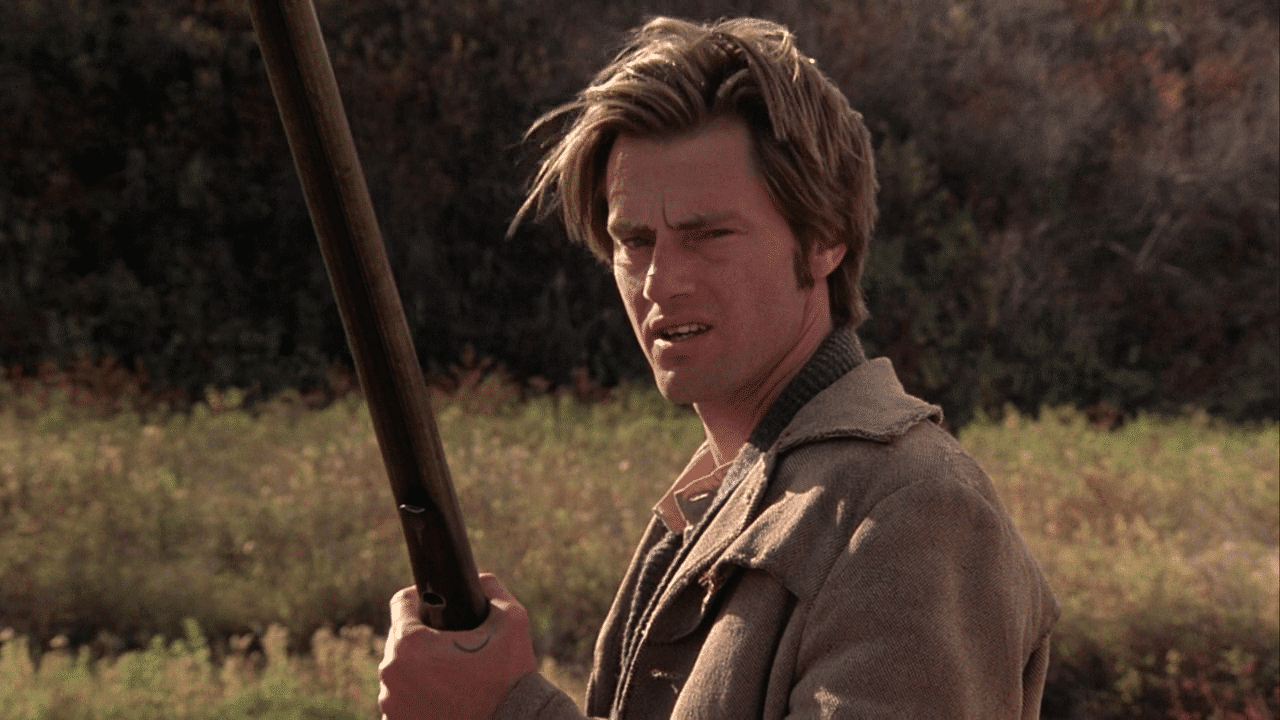Actor, Writer, Musician, Whatever.
The Pulitzer Prize winning playwright, Oscar-nominated actor, and go-to hardass for all your generic military micro-roles has left us a seemingly endless well of art. Sam Shepard may have sprung from nowhere in the Off-Off Broadway movement of the early 1960s, but he quickly established himself as an essential contributor to our culture. His name cannot be uttered without mention of his Family Trilogy – Buried Child, Curse of the Starving Class, and True West. These are three staggering works of emotional torture that would cement any human on this planet as a literary icon. True West alone could arguably be labeled his crowning achievement, but from that success, Shepard conquered at least two other mediums.
Sam Shepard first stepped onto the silver screen for Terrance Malick’s Days of Heaven. As the cuckold farmer set upon by Richard Gere’s devious farmhand, Shepard managed to match stillness with ferocity. It’s a thin line between betrayer and betrayed, and through Shepard, The Farmer somehow doesn’t conclude that film as the chump. He is just the monster of the industrial age.
After the critical success of Days of Heaven, Shepard did not propel himself into the casting guantlet. He took his time between pictures, he chose his roles methodically, and eventually he embodied the New Frontier spirit as Chuck Yeager in Phillip Kaufman’s The Right Stuff. While the big show of the Mercury 7 astronauts consumed national attention, through the words of Tom Wolf and the soul of Sam Shepard, Chuck Yeager truly represented the American desire to go beyond our boundaries. Space Cowboy? Yer damn right.
The same year Shepard took home a Best Supporting Oscar for The Right Stuff, his loose adaptation of his own book, Motel Chronicles, won the Palm D’Or at the Cannes Film Festival. Wim Wenders’ Paris, Texas is that Criterion masterpiece I find myself revisiting year after year. Harry Dean Stanton wanders out of the desert, mute, wrecked, and numb from an unspoken loss. It’s a performance that totally draws the audience into focus through the tiniest of expressions, the smallest of movements. Stanton builds his character with droplets of sweat, and crashes him upon the audience in a tidal wave of devastating passion.
Stop right there. That’s all the obvious stuff. You could spend the rest of your days watching and re-watching the landmarks listed above. We all know they’re brilliant. Quit with the drivel. As Sam Shephard told The New Yorker in 2010, when he first hit Off-Off Broadway, he was looking for whatever gig would stick first. “Actor, writer, musician, whatever.” Shepard never lost that spirit. Yes, while he was meticulous in selecting his acting roles at first, as he got older, he was also not above cashing some checks for John Travolta in Swordfish or for Rob Cohen in Stealth. He often relished in these quick buck roles, stealing scenes from the high-earners, and often had me dreaming of the Captain Cummings spin-off movie. He was always too good for the dreck, but never above it, and he never phoned it in.
Shepard took only two stabs at directing a film himself. In Far North, he leads Jessica Lange through an almost prototypical Sam Shepard familial drama. Her father is on the brink of catastrophic rage while her mother slips from sanity. Solid heartache, but Far North simply didn’t land the revelatory horror of Buried Child or True West. The film got a little attention from critics but zero dollars from the public.
His second directorial effort would garner even less attention, but personally ranks as one of my favorite entries in his filmography. Silent Tongue only saw a theatrical release after its star, River Phoenix, died of a drug overdose. In 1873, a husband guards the corpse of his wife around a campfire. While besieged by vultures and evil spirits, his father attempts to purchase the sister of his deceased daughter-in-law from a traveling carnival show. The story is grotesquely grim at times, and packed with wild imagination. As father and son, Phoenix and Richard Harris, superbly inhabit that demented family dynamic that Shepard excelled at staging earlier in his career. While the subject matter bumps against exploitation and will certainly turn some viewers off, Silent Tongue was the first film that called to me as the quintessential celebratory watch.
Sam Shepard died last Thursday of complications from ALS, also known as Lou Gehrig’s Disease. He was 73 years old, and he left this earth while at home in Kentucky. He was working right up until the end. He appeared throughout the entire run of Netflix’s Bloodline, he starred in Camille Thoman’s recently released Never Here, and this year saw the publication of his final novel, The One Inside. He was a true creative who thrived on his art.

